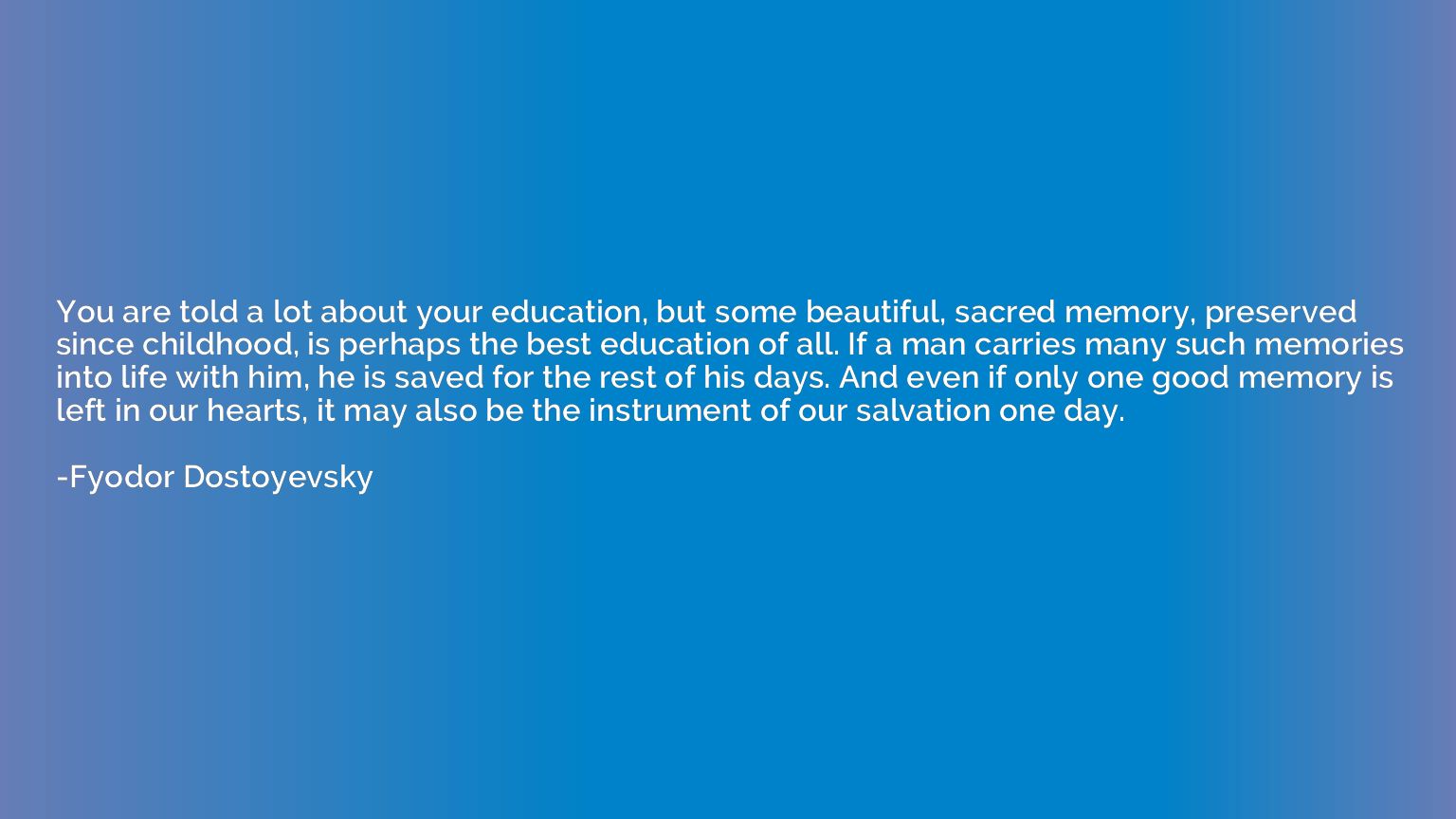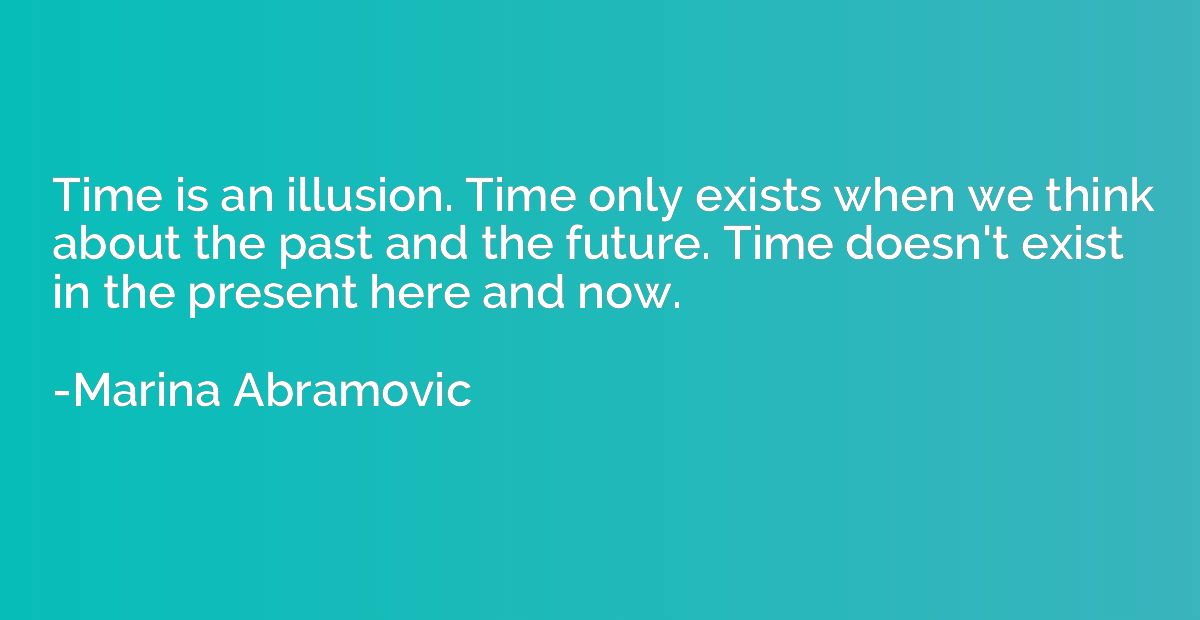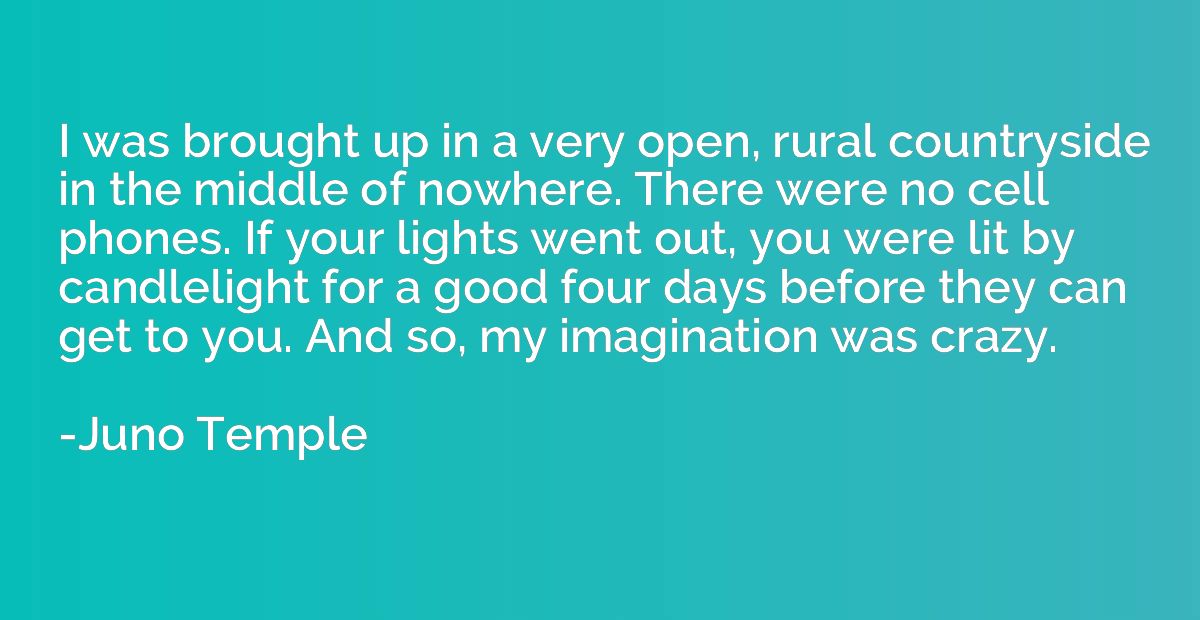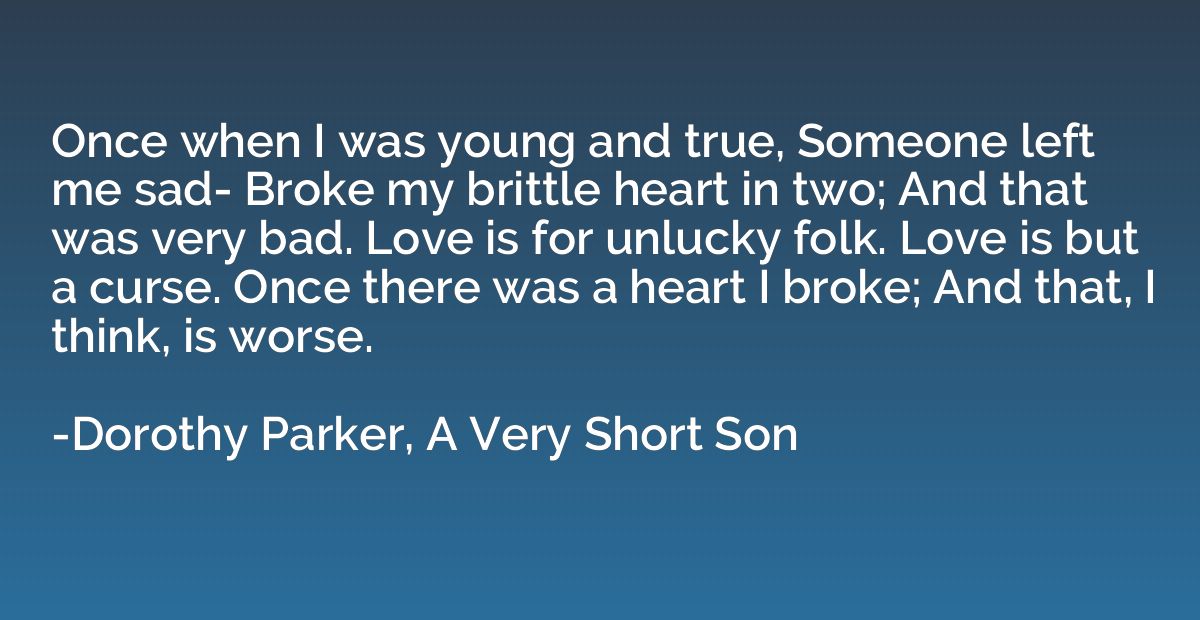Quote by Voltaire
Los Padres son dueños de todo y la gente no posée nada; es la obra maestra de la razón y la justicia. Yo no encuentro nada tan extraordinario como los Padres, que aquà luchan contra el rey de España y el de Portugal, y que allÃ, en Europa, confiesan a esos mismos reyes; que aquà matan españoles, y que en Madrid los envÃan al cielo: es algo portentoso
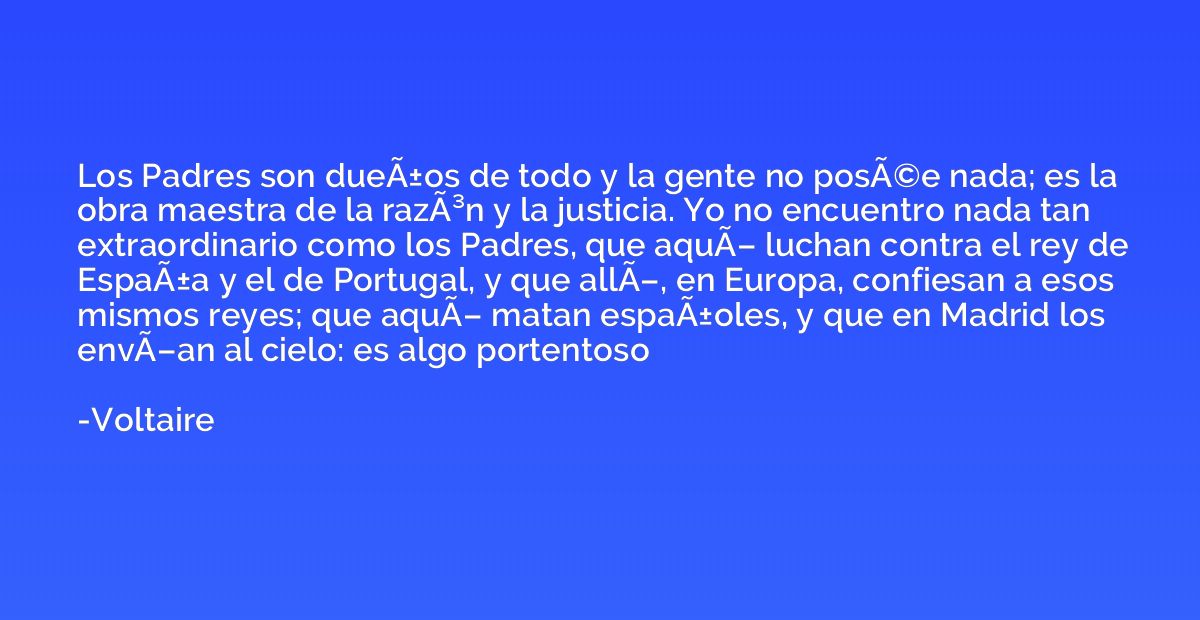
Summary
This quote highlights the contradictions and power dynamics between the Catholic Church, represented by the Padres (priests), and the people. It suggests that the Padres possess everything and everyone else owns nothing. The quote also draws attention to the church's ability to navigate complex political alliances, as they fight against Spanish and Portuguese kings in the New World, while still confessing them in Europe. The statement presents a sense of awe for the church's immense influence, as it seemingly has the power to take lives in one place and send souls to heaven in another.
By Voltaire



